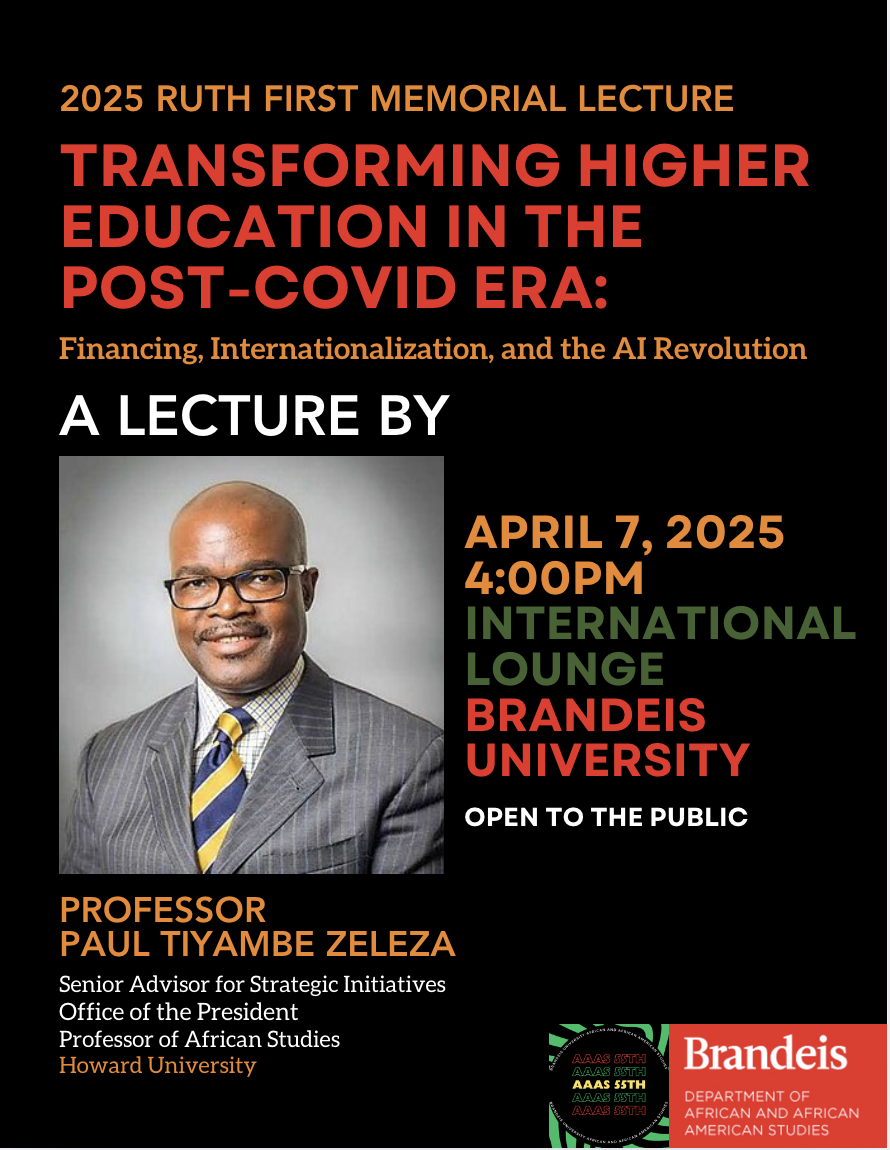Ruth First Memorial Lecture
 Ruth First
Ruth First
The Ruth First Memorial endowment was established through the generosity of Rose Schiff, Eileen Schiff Wingard, and Zina Schiff Eisenberg in memory of their beloved daughter and sister, Louise Joy Schiff.
They designed these funds for annual lectures on black liberation in southern Africa. The African and African American Studies Department, and specifically the late Professor Gloria Waite, and Professor Wellington Nyangoni, decided to name it in honor of Ruth First. And thus began the lecture series in 1985.
Ruth First was a white South African who was dedicated to the freedom of all South Africans in the apartheid regime under which they lived. The child of Communist South Africans, she devoted her life to the Communist Party as the Johannesburg reporter for the radical weekly Guardian, for instance, she exposed the Bethal farm labor scandal in which persons sentenced for petty offences under the Pass Laws were covertly sent to work in terrible conditions in farm-prisons and she helped to organize the resulting potato boycott campaign. This newspaper was repeatedly banned, only to reappear under different names.
Ruth First was among many charged in the Treason Trial in 1956, when the African National Congress, or ANC, and other organizations were charged with trying to overthrow the government. In 1963 she was arrested, imprisoned and released on condition that she would leave South Africa permanently. She writes about this in the book "117 Days." She eventually settled in Mozambique, with her husband, prominent anti-apartheid activist Joe Slovo. She became the director of research for the Center for African Studies at Eduardo Mondlane University. And it was here in her office, on Aug. 17, 1982, that she opened a large manila envelope sent from a United Nations agency — all mail to Mozambique went through South Africa — and was instantly killed by the explosive device that had been placed in it. Her funeral in Mozambique was attended by thousands, and was addressed by President Samora Machel (the late President who would eventually be assassinated as well).
Ruth First Lectures

April 7, 2025
4:00PM | International Lounge, Usdan
Please join us for the 2025 Ruth First Memorial Lecture featuring Professor with Professor Paul Tiyambe Zeleza, Professor of African Studies at Howard University.
The global landscape of higher education is undergoing profound transformations in the wake of the COVID-19 pandemic, reshaping institutional priorities, governance structures, and academic models. This lecture will critically examine three interconnected challenges that are redefining the post-pandemic academy: the enduring crisis of university financing, the shifting dynamics of internationalization, and the disruptive impact of artificial intelligence (AI).
Building on insights from my recently published book, Re-Envisioning the African and American Academies (October 2024), this lecture will explore the financial sustainability of universities amid declining public funding, shifting enrollment patterns, and rising operational costs. It will also assess the evolving landscape of global higher education partnerships, student mobility, and knowledge production, particularly in the face of geopolitical realignments and digital transformation. The third focal point will be the AI revolution, which is accelerating changes in teaching, research, and university governance, raising pressing questions about ethics, equity, and the future of academic labor.
As universities navigate these challenges, they must develop innovative financial models, inclusive internationalization strategies, and responsible AI governance frameworks. This lecture will offer a comparative and forward-looking perspective, drawing on examples from Africa, the Americas, and beyond, to envision a higher education system that is more sustainable, globally engaged, and technologically adaptive. In doing so, it will highlight strategies for ensuring that the post-pandemic academy remains a vital force for knowledge creation, societal transformation, and global progress.
About the Speaker
Paul Tiyambe Zeleza is Senior Advisor for Strategic Initiatives and Professor of African Studies at Howard University. Previously he was Associate Provost and the North Star Distinguished Professor at Case Western Reserve University (2021-2023), after serving as Vice Chancellor (President) and Professor of the Social Sciences and Humanities at the United States International University (USIU) in Kenya from 2016-2021. Prior to that he held distinguished academic and administrative positions as College Principal (Trent University, Canada), Director of the Center for African Studies (University of Illinois at Urbana-Champaign), Professor of History and African and African American Studies (Pennsylvania State University), Chair of the Department of African American Studies (University of Illinois at Chicago), Dean of the College of Liberal Arts (Loyola Marymount University), and Vice President for Academic Affairs (Quinnipiac University).
An interdisciplinary scholar, his work covers the fields of African economic history, development studies, intellectual history, diaspora studies, gender studies, human rights studies, cultural studies, and literary studies. He has published more than 400 journal articles, book chapters, encyclopedia entries, reviews, short stories, and online essays and authored or edited 28 books and five short monographs. Several of his books have won international awards. His forthcoming books include Re-envisioning African and American Universities (2024), and The Chronicles of African University Leaders (2024), a volume of reflections by former vice chancellors of some of Africa’s leading universities. He has published two collections of short stories and an acclaimed novel that is being turned into a movie. (Biography courtesy of Howard University.)